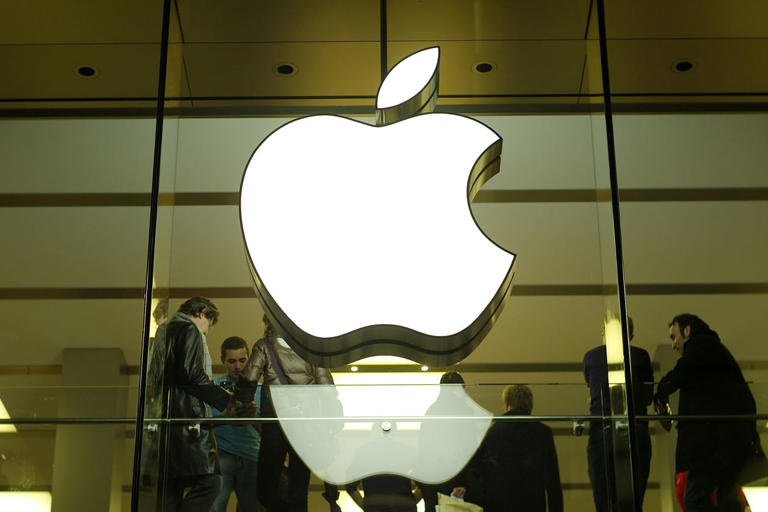While many tech stocks have surged amid the artificial intelligence (AI) frenzy, Apple’s performance has been lackluster. The company’s shares dipped by 0.8% to $170.85 following reports that Apple was in early discussions with Baidu regarding potential collaboration on AI technology for Apple devices in China. While this development buoyed Baidu’s stock, skeptics interpreted it as further evidence of Apple’s perceived lag in the AI arena.
Apple, once a key player among the Magnificent Seven big tech stocks that fueled much of the rally in 2023, has seen its shares decline this year, partly due to concerns surrounding its AI initiatives. While other factors, such as weakening iPhone sales in China and a new antitrust lawsuit, also weigh on investor sentiment, the perceived lag in AI innovation has been a significant drag on Apple’s stock performance.
Despite these challenges, analysts remain optimistic about Apple’s prospects. Wedbush analyst Dan Ives, who maintains an Outperform rating and a $250 price target on Apple, sees the current period as just another chapter in Apple’s growth story, with AI poised to become a key focus area for the company. Similarly, Melius Research’s Ben Reitzes reaffirmed a $220 price target on Apple, emphasizing the potential for AI-driven enhancements to the iPhone user experience.
Reitzes believes that AI-powered features, integrated into Apple’s ecosystem through an upgraded Siri and other AI apps, could drive a significant upgrade cycle for iPhones, reminiscent of the 2014-2015 boom. This optimism is rooted in the belief that AI capabilities will significantly enhance the utility and functionality of Apple’s products.
However, not all analysts share this bullish outlook. UBS analyst David Vogt, maintaining a Neutral rating on Apple, expresses concerns about the company’s performance in China, particularly amid increased competition from domestic rivals like Huawei. Vogt’s survey work suggests potential challenges in retaining iPhone users in China, highlighting the need for Apple to address market dynamics in the region.
Despite these challenges, Ives contends that Apple remains committed to its China strategy, as evidenced by CEO Tim Cook’s recent visit to the nation. Ives suggests that Apple may intensify its investments in retail infrastructure in China, doubling down on its presence in this crucial market.
While Apple’s stock has declined by approximately 11.5% since the start of 2024, analysts remain divided on its prospects. Nonetheless, there is consensus that if Apple can demonstrate its AI potential and navigate challenges in China and the legal arena, renewed investor interest could propel the stock higher. Reitzes believes that Apple is well-positioned to capitalize on the broader rollout of generative AI across smartphones, leveraging its technology and strategic initiatives to maintain a leading role in the industry.
